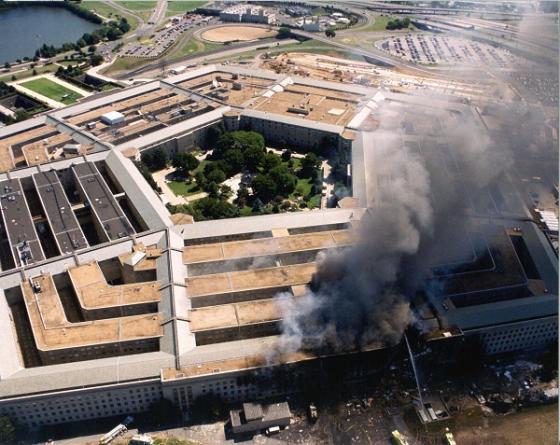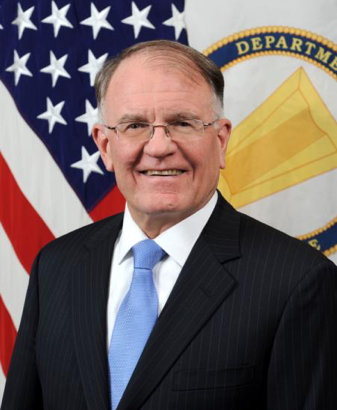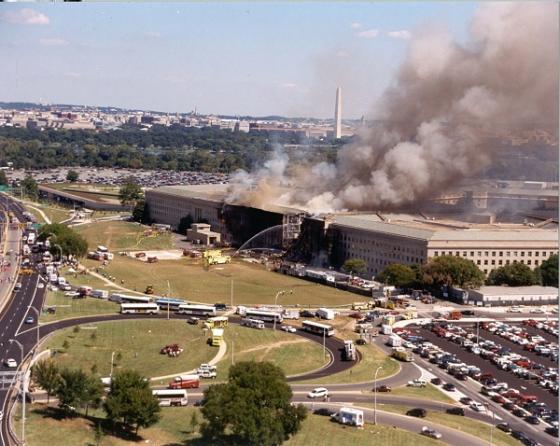Make a donation to the museum
“It was an American Experience:” Colonel Mark Lewis’s Survival at the Pentagon
“It was an American Experience:” Colonel Mark Lewis’s Survival at the Pentagon


Growing up in a family where both his parents were Army veterans, Mark Lewis knew he was destined to serve in the military too. While he did not intend for it to be a lifelong career, by 2001 Lewis was working in the Pentagon as a director in the United States Army G-1 with the rank of colonel and more than 30 years of military service under his belt.
On the morning of September 11, 2001, after reporting to work early and tending to a few tasks, Col. Lewis saw the news of a plane crash at the World Trade Center on television. He, like many, did not immediately suspect terrorism. “The thought of a person behind the window of an airliner, flying it deliberately into a building … that just doesn’t resonate with me,” he said. Wanting to inform others of what was happening, Lewis began making his way toward the office of Lieutenant General Timothy J. Maude, his boss, who was on his first day back from leave.
Lewis was roughly 40 feet from Maude’s office when hijacked Flight 77 crashed into the western face of the Pentagon at 9:37 a.m., killing 59 passengers and crew members on the plane and 125 people in the building, including Lieutenant General Maude. With a wall of smoke and flame now obstructing his pathway, Lewis understood his immediate task was now to begin helping disoriented survivors find a safe way out of the Pentagon.
Lewis recalled people—both military and civilians—jumping into action to help in the evacuation. Once first responders took over the rescue operation, Lewis and his team reconvened to focus on their next task: making phone call after phone call until they could account for the whereabouts of all Army personnel.
After 9/11, Lewis attended numerous memorial ceremonies for those killed on that day and mentioned how most of these people were in fact civilians. “These were all people, great Americans, doing what you want them to do—supporting their government, raising their families, getting on with life,” he said. “They were not fair game.”
Now a professor at the Eisenhower School as part of the National Defense University in Washington, D.C., Lewis understands that while the students he teaches may not understand the meaning of 9/11, they are now the generation dealing with its lasting impact. “These are traumatic events that affect all humankind,” said Lewis. “It might happen again, but at least we will be more cognizant of it.”
On Sept. 11, 2019, Lewis will share his story as a part of the fourth annual Anniversary in the Schools webinar. Register for this free program here.
The webinar is made possible thanks to generous support from The New York Life Foundation.
By Meredith Ketchmark, Assistant Manager of Youth & Family Programs, 9/11 Memorial Museum
Previous Post
Covering the 9/11 Attacks: One Reporter’s Story

Reporter Sofia Lachappelle and her Univision team would ultimately stay at Ground Zero for almost a week, eating donated food and sleeping in their news truck.
Next Post
Pentagon Survivor Kathy Dillaber Tells Her 9/11 Story

On September 11, 2019, Kathy, along with four others, will share her story as a part of this year’s fourth annual Anniversary in the Schools webinar.